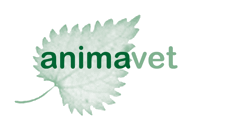
animal health consulting
Hendra: why not just go ahead and vaccinate?
Christine King BVSc, MANZCVS (equine), MVetClinStud
Table of Contents
Risks
Benefits
the vaccine
Benefits: the vaccine
The research published to date indicates that the Hendra virus (HeV) vaccine is effective in eliciting a protective immune response and limiting viral shedding when given as directed.
However, we're going on very limited data here. And Zoetis includes the following statement on the product leaflet for their HeV vaccine:
"The effectiveness of Equivac HeV vaccine in the face of Hendra virus disease outbreak has not been studied."
Experimental challenge study
In the pivotal study required for vaccine approval, horses were experimentally challenged with a large amount of live HeV isolated from the 2008 HeV outbreak in Redlands, Queensland.
However, it's worth noting that this study included only 10 vaccinated horses and 4 unvaccinated horses, and all horses (including the vaccinated ones) were euthanised by day 9 after viral challenge so that their tissues could be examined post-mortem, whether or not they were showing signs of illness. What might have happened beyond day 9 is anyone's guess.
Field study
A 2-year-long field study involving a herd of (initially) 57 horses showed that horses mount an antibody response to HeV vaccination under 'field' (real-world) conditions that is expected to be protective.
However, only 29 horses were available for antibody testing at the first annual booster and 26 horses at the second annual booster. So, the current recommendations are based on data from less than 30 horses. And these horses were not challenged with HeV in this study; it was simply a study of antibody responses to vaccination.
Furthermore, while antibody levels were highly variable among horses, this study calls into question the need for annual boosters as a 'blanket' recommendation for every horse, every year, no exceptions.
Summary
To date, no fully vaccinated horses have developed HeV infection — but that's not saying a whole lot. Even before we had a vaccine, HeV "outbreaks" have been very uncommon, patchy, and typically involved only a few horses or even just a single horse here and there (which is hardly an "outbreak").
The vaccine has been fully approved for use in horses only since August 2015, and uptake has been low, so it's too soon to be making very much of its real-world performance.
If you're interested in doing a deep dive into the two studies I mentioned here,
© Christine M. King, 2021, 2022. All rights reserved.
Last updated 29 May 2022.
to article main page